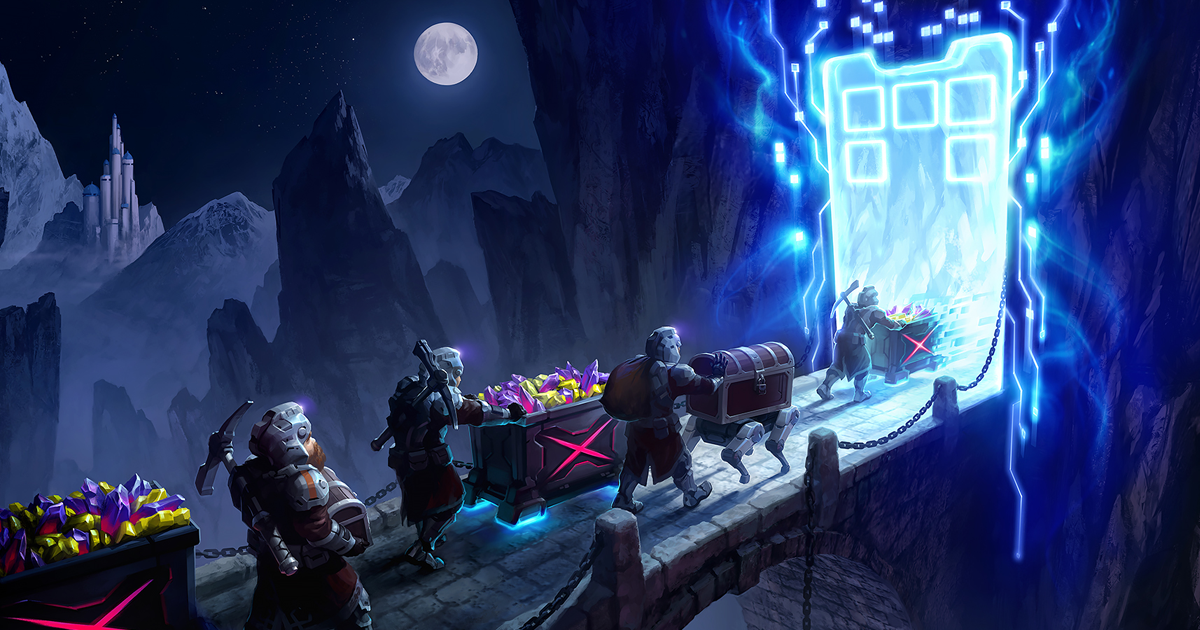What is Mobile Game Commerce? Why is it needed? What do the App Store and Google Play think about payments made in multiplatform games? How do superapps work? We talked about this and many other things with Xsolla.
Our interlocutor was Anna Patokina, the company’s account manager.
 Anna PatokinaApp2Top.ru : Hello.
Anna PatokinaApp2Top.ru : Hello.
In winter, you presented a new project. It’s called Mobile Game Commerce (MGC). It’s time to sum up the first results and share cases. But let’s start with the point. What is MGC?
Anna: In short, Mobile Game Commerce is our solution for mobile gaming. It allows developers and publishers of mobile games to release and distribute games outside of app stores, thereby attracting a new audience.
What does “distribute outside of app stores” mean?
Anna: As part of MGC, we offer developers two scenarios for the distribution of mobile games.
The first scenario is the transfer of a mobile game to the web. Second…
Not so fast. Will the transfer be done by the team itself?
ANNA: Yes.
And then what does MGC do?
Anna: You can use it to embed the Xsolla store into the web version of the game. The web store will connect the mobile version of the game, the web version, the PC version and any other versions.
Its advantage is that it is a ready-made solution that allows the user to play with saving purchases from any device that is more convenient for him now.
For example, I jumped in with a PC, bought a new sword, played for five minutes, went to a meeting. While I was sitting in a taxi, I started the game already on iOS, pumped the sword level, closed the game satisfied.
You described a user scenario in which a user buys something in the web version, and then plays with this content in the mobile native version, right?
ANNA: Yes.
And the purchase history can be shared?
Anna: That’s right, if you use a single user account on all platforms, no matter which version of the game the user chooses, he will always have access to the same inventory and purchase history.
A single user account can be anything?
ANNA: Yes. We can link purchases both to an existing in-game user account of any of the platforms, and offer to use our Xsolla Login solution.
Will the App Store or Google Play block you for the opportunity to buy content in the web version of the game so that you can then play on mobile?
Anna: It is important to understand that we do not offer to add third-party payment systems to app stores. We propose to transfer the game or the game store to other platforms that do not imply such restrictions.
If your game runs on multiple platforms, the player may have multiple entry points, but, as I said before, a single account and a single inventory.
Stores do not force developers to release their games exclusively on the platform of a particular store. Their requirement is the processing of payments initiated from the mobile version of a particular store using the built—in payment systems of this store. This requirement does not apply to the web or the placement of your game’s products on third-party marketplaces.
In any case, we always recommend periodically checking the open terms of cooperation of stores in order to minimize possible risks in case of changes in the terms of the contract.
I think we have roughly figured out the first scenario. And what is the second scenario of the distribution of games, what is it?
Anna: The second scenario is a slightly more complex story. The fact is that we can help with the distribution of games in the so-called “superapps”.
What is superapp?
Anna: Superapp is an application that provides users with access to a wide range of services (grocery delivery, payments, messenger, entertainment, and so on).
The most illustrative example is WeChat. He is the first superapp. A separate ecosystem based on mini-apps that can be made by third-party companies is built inside it. In mini-apps, they can directly offer their products and services.
Over time, WeChat has become so popular that it has become easier for users to buy different categories of goods, including online games, inside the application, rather than on third-party platforms and stores.
WeChat is a Chinese story. It’s great that you’re looking in that direction, but how relevant is it in the world?
Anna: Let’s look at Russia. We can call VK, “Sber Online” and “Tinkoff” superapps.
In these apps, you can pay for the game or top up your in-game account directly from the app. Inside these applications there are separate sections dedicated to online games.
And what does Xsolla have to do with it?
Anna: We help mobile games reach a large number of these superapps.
Our tools allow you to place game buttons in superapp stores without any technical or operational investments in each new integration. Thus, games can be sold on many platforms at once, each of which has its own base of loyal users.
But can’t superapps run games?
Anna: No, unlike gaming platforms or messengers, superapps do not offer their users to play inside the application.
They exclusively allow you to buy or pay for something in the game. You can’t download from Superapp or play in it.
Let’s say the developer is not ready to port to the web, but he was interested in the possibility of getting into superapp. Is there anything that can be done?
Anna: There will be no problem with that. Superapps are not needed to transfer the game itself to the platform. These are showcases, no more. So in this case, the developer will only need to add the SKU of the product catalog to our ecommerce platform, and we will figure out the rest.
So, thanks to MGC, developers can launch a web version with monetization from Xsolla, as well as appear on the superapp showcase. Do I understand correctly that the first scenario allows you to collect payments in the web version without the commission of the stores, and the second is to be a traffic source just for the web versions?
Anna: The described scenario is quite working, yes.
Are there any cases?
Anna: One of the cases we can share is the story of our friends from Nexters. We have been working with Nexters for a long time and helping with the distribution of their RPG Hero Wars.
Immediately after the launch, Hero Wars was very successful on social platforms such as FB and VK. Their next step was to reach out to new platforms and implement a cross-platform approach to game distribution.
Nexters were confident that this would help them increase their sales margin and reach out to new players around the world, and we suggested that the guys use our solutions to support the launch of Hero Wars on the web.
And what results did it lead to?
Anna: I’ll make a reservation right away: MGC is the functionality that we have offered before (including Nexters). Six months ago, we wrapped it in a beautiful solution for developers, adding a few more features. Therefore, the results are slightly lower not for six months, of course, but for a longer period. So, thanks to us:
- on average, the cost of distribution on the web has decreased by 20% compared to other platforms;
- Hero Wars has become especially successful in those markets where gamers prefer to play on the web (Japan, South Korea and Taiwan have become key territories, local payment systems have become available to users in them, and we have also fully taken over the calculation and payment of taxes);
- Over the past few years, we have seen a 20+ fold increase in sales of the web version of Hero Wars.
Clear. Thanks for the interview.

